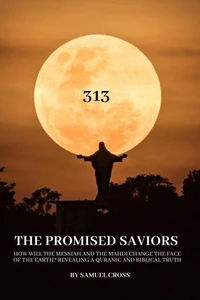The End of History: An Analytical Study of Fukuyama's Thesis
Par :Formats :
Disponible dans votre compte client Decitre ou Furet du Nord dès validation de votre commande. Le format ePub est :
- Compatible avec une lecture sur My Vivlio (smartphone, tablette, ordinateur)
- Compatible avec une lecture sur liseuses Vivlio
- Pour les liseuses autres que Vivlio, vous devez utiliser le logiciel Adobe Digital Edition. Non compatible avec la lecture sur les liseuses Kindle, Remarkable et Sony
 , qui est-ce ?
, qui est-ce ?Notre partenaire de plateforme de lecture numérique où vous retrouverez l'ensemble de vos ebooks gratuitement
Pour en savoir plus sur nos ebooks, consultez notre aide en ligne ici
- FormatePub
- ISBN8227448330
- EAN9798227448330
- Date de parution12/04/2025
- Protection num.pas de protection
- Infos supplémentairesepub
- ÉditeurBig Dog Books, LLC
Résumé
Title: The End of History: A Critical Study of Fukuyama's Controversial ThesisUnlock the Debate That Shaped Modern Political ThoughtIs liberal democracy truly the "end point" of human civilization? In this penetrating analysis, Samuel Cross dissects Francis Fukuyama's explosive End of History thesis-and its enduring clash with Islamic and Eastern worldviews. Why This Book Matters Now: ?? Deep Critique: Exposes Fukuyama's ideological blind spots, from Western-centrism to his underestimation of Islam as a rival ideology.
?? Civilizational Crossroads: Explores the unresolved tension between liberal democracy and Islamic governance in the 21st century. ?? Philosophical Roots: Traces Fukuyama's ideas to Hegel, Marx, and Plato-revealing why his vision remains hotly debated. ?? Global Relevance: Connects Cold War-era theories to today's crises (nationalism, religious revival, and authoritarian resurgence). Key Themes & Keywords :Political philosophy, End of History, Francis Fukuyama, liberal democracy vs Islam, clash of civilizations, Hegelian theory, post-Cold War ideologies, critique of Western hegemony, political Islam, thymos and megalothymia.
Perfect For Readers Of: Fukuyama's The End of History and the Last Man Samuel Huntington's Clash of Civilizations Works by Noam Chomsky or Edward Said Provocative. Timely. Unflinching. Whether you're a student of political science, a critic of Western liberalism, or a seeker of alternative futures, this book challenges the dominant narrative-and invites you to rethink history's "final chapter."
?? Civilizational Crossroads: Explores the unresolved tension between liberal democracy and Islamic governance in the 21st century. ?? Philosophical Roots: Traces Fukuyama's ideas to Hegel, Marx, and Plato-revealing why his vision remains hotly debated. ?? Global Relevance: Connects Cold War-era theories to today's crises (nationalism, religious revival, and authoritarian resurgence). Key Themes & Keywords :Political philosophy, End of History, Francis Fukuyama, liberal democracy vs Islam, clash of civilizations, Hegelian theory, post-Cold War ideologies, critique of Western hegemony, political Islam, thymos and megalothymia.
Perfect For Readers Of: Fukuyama's The End of History and the Last Man Samuel Huntington's Clash of Civilizations Works by Noam Chomsky or Edward Said Provocative. Timely. Unflinching. Whether you're a student of political science, a critic of Western liberalism, or a seeker of alternative futures, this book challenges the dominant narrative-and invites you to rethink history's "final chapter."
Title: The End of History: A Critical Study of Fukuyama's Controversial ThesisUnlock the Debate That Shaped Modern Political ThoughtIs liberal democracy truly the "end point" of human civilization? In this penetrating analysis, Samuel Cross dissects Francis Fukuyama's explosive End of History thesis-and its enduring clash with Islamic and Eastern worldviews. Why This Book Matters Now: ?? Deep Critique: Exposes Fukuyama's ideological blind spots, from Western-centrism to his underestimation of Islam as a rival ideology.
?? Civilizational Crossroads: Explores the unresolved tension between liberal democracy and Islamic governance in the 21st century. ?? Philosophical Roots: Traces Fukuyama's ideas to Hegel, Marx, and Plato-revealing why his vision remains hotly debated. ?? Global Relevance: Connects Cold War-era theories to today's crises (nationalism, religious revival, and authoritarian resurgence). Key Themes & Keywords :Political philosophy, End of History, Francis Fukuyama, liberal democracy vs Islam, clash of civilizations, Hegelian theory, post-Cold War ideologies, critique of Western hegemony, political Islam, thymos and megalothymia.
Perfect For Readers Of: Fukuyama's The End of History and the Last Man Samuel Huntington's Clash of Civilizations Works by Noam Chomsky or Edward Said Provocative. Timely. Unflinching. Whether you're a student of political science, a critic of Western liberalism, or a seeker of alternative futures, this book challenges the dominant narrative-and invites you to rethink history's "final chapter."
?? Civilizational Crossroads: Explores the unresolved tension between liberal democracy and Islamic governance in the 21st century. ?? Philosophical Roots: Traces Fukuyama's ideas to Hegel, Marx, and Plato-revealing why his vision remains hotly debated. ?? Global Relevance: Connects Cold War-era theories to today's crises (nationalism, religious revival, and authoritarian resurgence). Key Themes & Keywords :Political philosophy, End of History, Francis Fukuyama, liberal democracy vs Islam, clash of civilizations, Hegelian theory, post-Cold War ideologies, critique of Western hegemony, political Islam, thymos and megalothymia.
Perfect For Readers Of: Fukuyama's The End of History and the Last Man Samuel Huntington's Clash of Civilizations Works by Noam Chomsky or Edward Said Provocative. Timely. Unflinching. Whether you're a student of political science, a critic of Western liberalism, or a seeker of alternative futures, this book challenges the dominant narrative-and invites you to rethink history's "final chapter."


